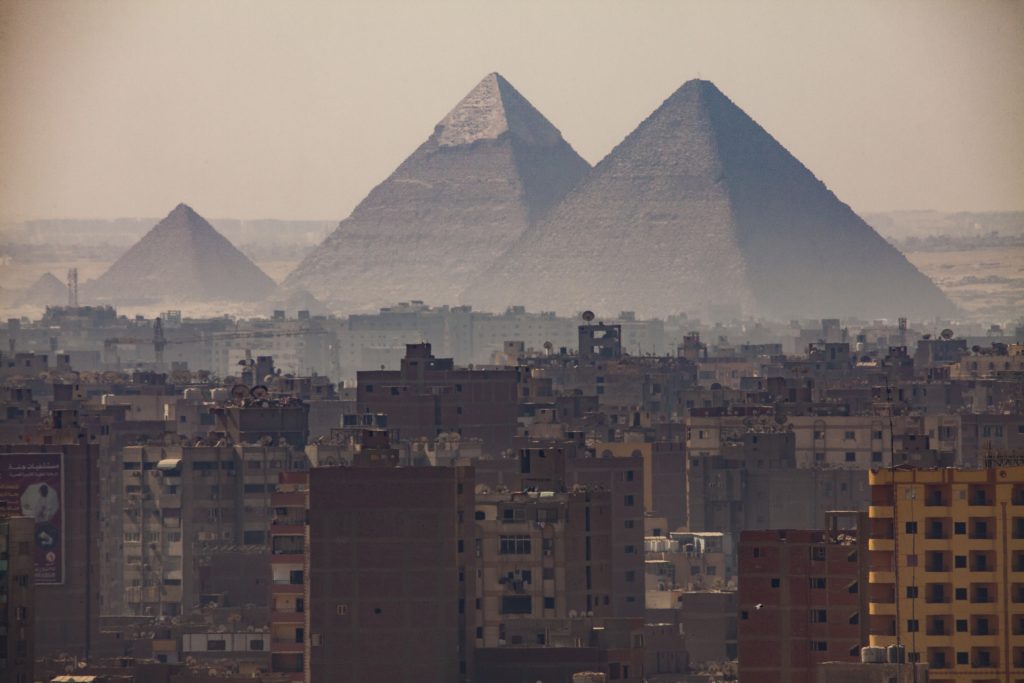Furthermore, according to tradition, Egypt traces its ecclesiological history back to the Gospel writer Mark. If true, the Egyptian church is one of the longest–standing churches in the world. So, in 2019, what is the state of the church in Egypt?
I recently had the privilege to sit down and chat with a few Egyptian evangelical leaders. I asked them what difficulties the church is facing but also where they see glimmers of hope. From those conversations, two significant barriers to growth, along with a common chord of hope, emerged from the testimonies of each leader as they assessed the situation in Egypt. As we pray for our brothers and sisters throughout this region, may this article help us to pray specifically alongside of the Egyptian church.
Barrier 1: Everyone Is Tired
Egypt has had a very difficult decade. In 2011, at the very beginning of the so-called Arab Spring, President Hosni Mubarak was ousted from power after thirty years of ruling the country. Since then, Egypt has undergone multiple rounds of emergency military rule, an elected and then deposed president, and a currently ruling elected president. Political instability has wreaked havoc on the country, and its citizens are weary.
In addition to political upheaval, the economy in Egypt has taken a sharp turn downward. In order to mitigate the damage, the Egyptian government has sought loans from the International Monetary Fund to help begin redevelopment. The downside of such loans, however, is that they have required the removal of all of the government subsidies that had been keeping the price of basic necessities low enough for the impoverished to afford. As I write this, the fuel subsidy is being lifted, and gas prices immediately shot up by 22 percent. In addition to the removal of subsidies, the value of the Egyptian Pound traded on the free market has caused it to plummet to less than half the value it had in 2011. As is often the case, the poor have borne the brunt of the political and economic changes.
Though these are political and economic changes, the church has been pummeled by the effects. When the stresses of political and economic upheaval boil over, the church often becomes the target of the collective frustration. Hundreds of churches and Christian-owned businesses have been burned and destroyed in the past eight years. Many churches are doing all they can merely to survive. It has been a long road of political change, economic struggle, and persecution for the Egyptian church. The leaders I spoke with simply said, “We are tired as a country, as Christians, and as a church. Pray that we would find our strength and stability in the gospel alone, and that it would prove to be enough to sustain us and to push us forward in our mission.
Barrier 2: The Church Got Distracted
A second issue facing the Egyptian evangelical churches that these leaders identified is the pernicious idea that ministry and disciple making is best measured by the number of events, programs, and conferences a church can host (Sound familiar?). In Egypt—as in the US—ministry can easily devolve into industry: the more products that a church can output, the more it can point to as evidence of effectiveness in ministry.
The leaders with whom I spoke expressed three concerns with this approach. First, an event-driven understanding of ministry takes away from the person-to-person discipleship that results in lasting gospel-driven transformation. Second, concern to host events, conferences, and programs can cause Egyptian leaders to succumb to the temptation to build a personal ministry brand rather than investing in the less conspicuous work of developing disciples. Finally, this approach can create a centripetal focus with in-house church activities that displaces a centrifugal mission of sending the saints to their neighbors.
Pray that the work of discipleship and disciple making would retain its proper place at the center of ministry within the Egyptian church. Pray that leaders would devote themselves to developing leaders. Pray that the congregations of disciples would view themselves as disciple makers. And pray that the programmatic aspects of ministry would support rather than supplant the task of multiplying disciples among Egyptians.
The Glimmer of Hope: The Next Generation
While the two issues above are certainly difficulties facing the Egyptian church, we must not neglect the common hope held by each of the leaders with whom I spoke. That is, the passion for the gospel exhibited by the younger generations. I can vouch for this enthusiasm from personal experience.
For instance, during a season of particularly acute persecution of Christians in Egypt, many of my friends increased their church attendance. When I asked them why, they said, “When we consider the gospel, we realize there is nothing more important than worshiping with God’s people. It demonstrates our confidence that even if they blow us up, Christ has already conquered. There is nothing to fear anymore!”
In addition to understanding the gospel-gathering to be worth risking their lives for, many of these twenty-somethings have seen the need for gospel-proclamation, and have become increasingly bold in sharing the gospel with their Muslim neighbors, classmates, and coworkers. One leader expressed his prayer for the Egyptian church this way: “I pray that the whole Egyptian church would see how the younger generation is treasuring the gospel and is willing to be caught up in the mission the gospel sends us on.”
Indeed, let us pray this prayer expectantly with him.




